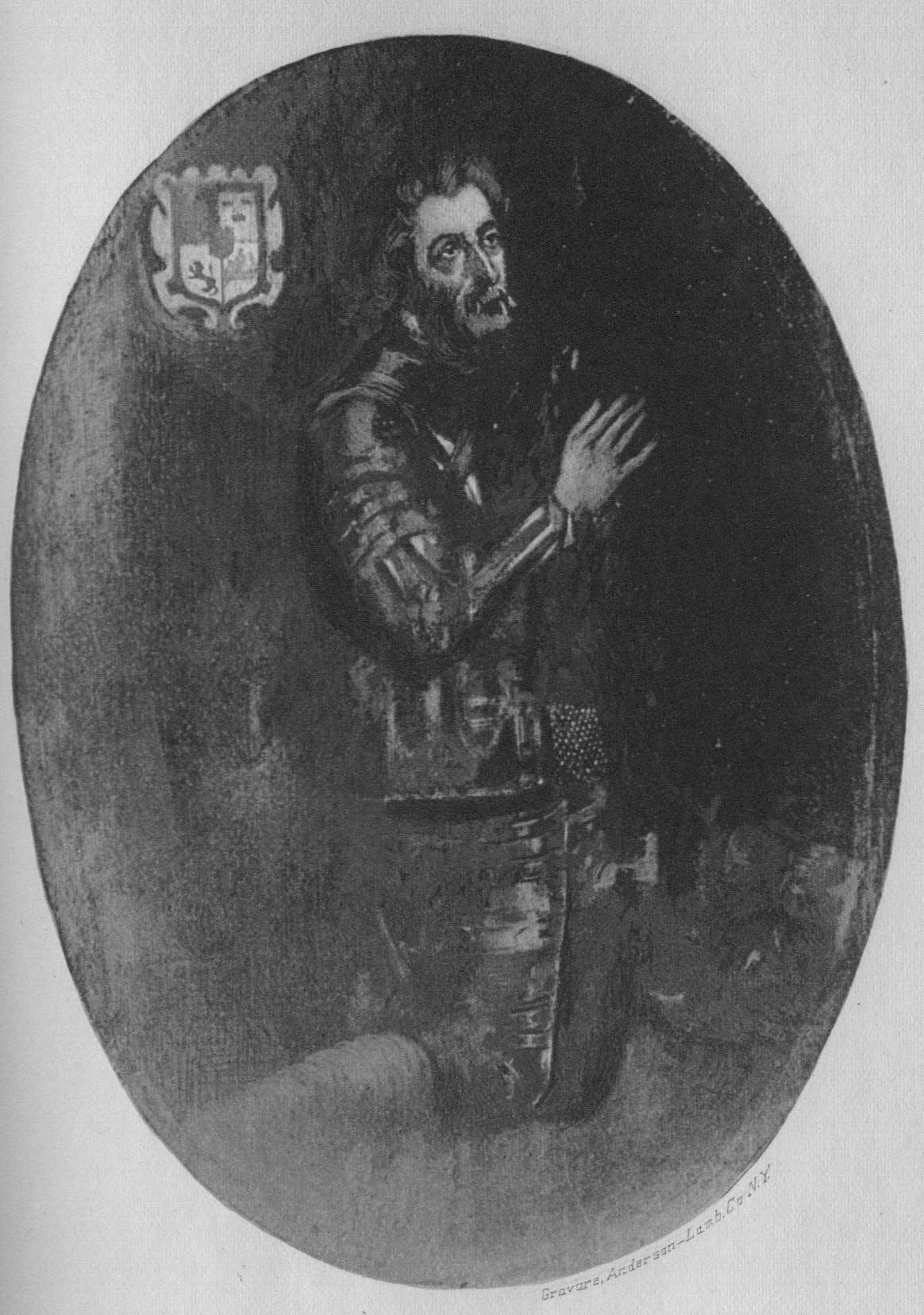CortÚs Defeats the Aztecs
 The
capture of Tenochtitlan
and the reduction of the Aztecs to submission were still as much as
ever the objects of CortÚs, and he resumed the task sturdily in
spite of his temporary check. His forces he rested and augmented.
Surrounding peoples he coerced or conciliated. The road to Vera Cruz
he put under guard. Disaffection in his own ranks, due to the
presence of so many of Narvßez's men, he quieted by "soothing
eloquence." At length, on the 28th of December, all was ready.
Tezcoco was occupied, and thirteen vessels — shallow barges which,
after the manner of Balboa in Darien, had been constructed in the
forest — were carried in pieces across the mountains and launched on
Tezcoco Lake. Between March and May, 1521, the Spaniards seized
Itztapalapan and other points; and, during May and June, CortÚs,
with nine hundred Spaniards and thousands of native allies,
eighty-six horses, and eighteen guns, began a systematic siege of
Tenochtitlan by land and water. Many were the advances and repulses.
The Aztecs resisted not alone with determination but with the utmost
fury. They cut the great dike; they converted every canal into a
moat; they made of every house a castle. Taunts and challenges no
less than missiles they flung across the water and down the
converging avenues. By night captive Spaniards, goaded to the top of
the Tlatelolco Pyramid, were spectacularly slaughtered in the glow
of sacrificial fires.
The
capture of Tenochtitlan
and the reduction of the Aztecs to submission were still as much as
ever the objects of CortÚs, and he resumed the task sturdily in
spite of his temporary check. His forces he rested and augmented.
Surrounding peoples he coerced or conciliated. The road to Vera Cruz
he put under guard. Disaffection in his own ranks, due to the
presence of so many of Narvßez's men, he quieted by "soothing
eloquence." At length, on the 28th of December, all was ready.
Tezcoco was occupied, and thirteen vessels — shallow barges which,
after the manner of Balboa in Darien, had been constructed in the
forest — were carried in pieces across the mountains and launched on
Tezcoco Lake. Between March and May, 1521, the Spaniards seized
Itztapalapan and other points; and, during May and June, CortÚs,
with nine hundred Spaniards and thousands of native allies,
eighty-six horses, and eighteen guns, began a systematic siege of
Tenochtitlan by land and water. Many were the advances and repulses.
The Aztecs resisted not alone with determination but with the utmost
fury. They cut the great dike; they converted every canal into a
moat; they made of every house a castle. Taunts and challenges no
less than missiles they flung across the water and down the
converging avenues. By night captive Spaniards, goaded to the top of
the Tlatelolco Pyramid, were spectacularly slaughtered in the glow
of sacrificial fires.
Spanish valor did much toward the reduction of the great
community of the lake, but famine and wholesale demolition of
buildings did more, and on the 13th of August the Chief-of-Men,
Quauhtemotzin, doughty successor to Cuitlahuatzin — who had died of
smallpox before the siege — surrendered in despair his own person
and what remained of his nation.
So fell Mexico-Tenochtitlan.
Fortunate was it for CortÚs that in 1519 it was
Montezuma who held in Mexico the
position of Chief-of-Men! Had it been otherwise — had this position
been held by Cuitlahuatzin or Quauhtemotzin — it may be doubted
whether the Sun myth of the Fair God and his impending return would
have been permitted to paralyze action. In a sense far from
fanciful, Montezuma, " sicklied o'er with the pale cast of thought,
" was the Hamlet of the Aztecs.
Back to: The Spanish Conquerors

